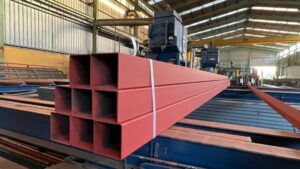
Turkish mills’ steel exports to the European region fell by 1.2 million mt year on year in the first five months of 2020 to 2.3 million mt, down from 3.5 million mt exported in the same period the previous year, mostly due to trade barriers and the COVID-19 pandemic. Turkish mills will focus more on export destinations like South East Asia, West Africa and Latin America in the coming months, said Adnan Aslan, chairman of Turkish Steel Exporters’ Union (CIB).
Drawing attention to the EU’s recent protection measure moves, Aslan also noted that they will continue to use all their legal rights against the EU’s moves.
The European Commission recently launched anti-dumping and countervailing duty investigations into imports of certain hot-rolled flat products from Turkey, following a request by European steel association Eurofer, as Platts has reported.
Turkey informed the World Trade Organization on May 25 that custom duties could be imposed on steel imports from the EU in response to the EU’s imposition of additional measures against imports of Turkish steel.
Turkey has 30 days to suspend, change and impose the stated additional duties following the notice, according to article 8.2 of the Safeguard Measures agreement. Turkish market sources are expecting a presidential decree in this regard to be published within a week.
Turkish mills’ overall steel exports volumes declined by 17.8% in the first five months of 2020, due to pandemic, however some recovery has started in export volumes as of June amid normalization efforts in trade globally.
“Due to the pandemic, we have entered a new period specific to supply chain. In that period, it is hard to export to the whole of the world as before. While we are giving more priority to our domestic sources, we should also pay sufficient attention to exports. In this regard, we will focus on export markets like South East Asia, West Africa and Latin America, where steel demand is rising,” Aslan said.
Drawing attention to the historically high level of liquidity and the low level of interest rates, the chairman of CIB also said: “Action plans by countries to change shrinkage to growth during the COVID-19 pandemic are inevitable.”
— Cenk Can




